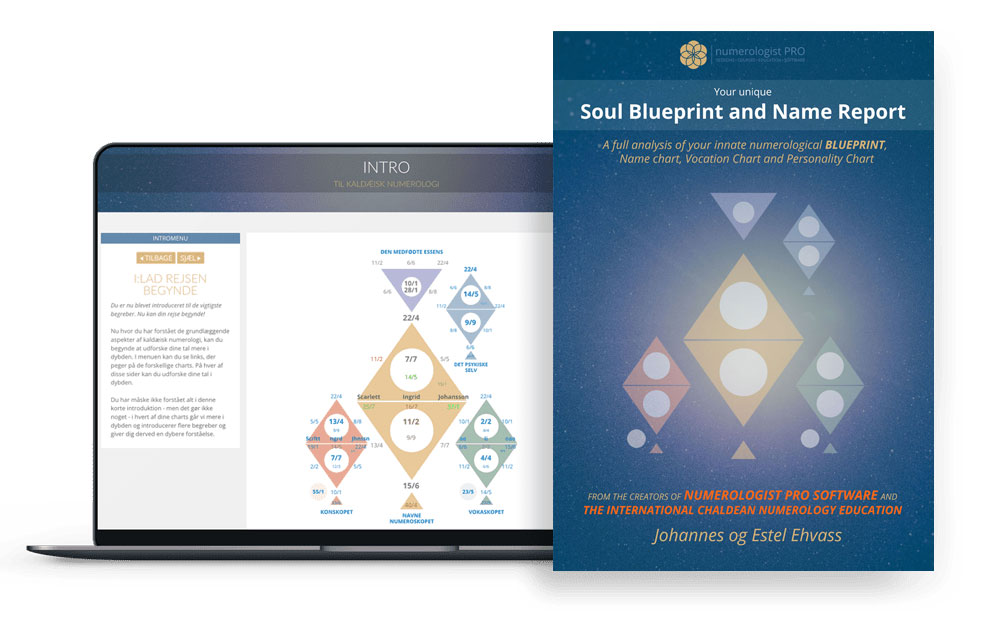The Church and the Stars: A Contentious Relationship

Johannes Ehvass
Welcome, dear reader! Together, we embark on a captivating journey into astrology, a timeless art and science that has accompanied humanity since its earliest days. Each astrological discovery not only mirrors the era and culture it emerged from but also feels like a celestial gift, as if the universe is directly speaking to us. Through these articles, I share with you the profound journey of how astrology has grown and evolved alongside us. Let's explore this cosmic connection that has, for millennia, enriched our understanding of ourselves and the universe around us.

The relationship between the Christian Church and astrology throughout the Middle Ages was intricate and ever-evolving.
The dance between the celestial art and ecclesiastical authority played out over centuries, marked by moments of tacit acceptance, rigorous debate, and outright condemnation.
This article delves deep into the Church’s oscillating views on astrology, its place in theological debates, and the often blurry line that distinguished orthodoxy from heresy in this celestial discourse.
The Church’s Shifting Stance on Astrology
The stance of the medieval Christian Church on astrology was not static; it morphed in response to varying historical, cultural, and theological influences over time.
Early Christian Views: Caution and Condemnation
In the early days of Christianity, many Church Fathers like St. Augustine and St. Jerome expressed skepticism or direct disapproval of astrology. Viewing it as a pagan practice, they cautioned Christians against seeking answers from the stars instead of God. This sentiment stemmed from a desire to delineate Christian beliefs from pagan practices and to protect the burgeoning faith from external influences.
The Carolingian Renaissance: A Resurgence of Interest
The Carolingian period marked a resurgence of interest in classical knowledge, including astrology. Charlemagne, the Frankish king, commissioned translations of key astrological works and sought counsel from scholars proficient in the celestial arts. The Church’s stance during this time was more lenient, allowing for the assimilation of astrological thought as long as it did not challenge Christian doctrine directly.
High Middle Ages: A Delicate Balance
By the High Middle Ages, universities were engaging with astrological thought in their curricula, reflecting its integration into academic life. While some clerical figures like Thomas Aquinas sought to reconcile astrological principles with Christian theology, others vehemently opposed it. This period saw the Church navigating a delicate balance, promoting intellectual exploration while maintaining doctrinal purity.
Astrological Thought within Theological Debates
The intertwining of astrological thought and theology spurred vigorous debates within the Church’s intellectual circles, shaping the contours of Christian doctrine in unexpected ways.
Free Will vs. Determinism
One of the most significant theological debates influenced by astrology was the question of free will versus determinism. If the stars could dictate one’s fate, how did this align with the Christian notion of free will? Thinkers like Albertus Magnus and Thomas Aquinas grappled with these questions, positing that while celestial bodies might influence earthly events, human free will remained paramount in moral choices.
The Three Magi and the Star of Bethlehem
Astrology also found its way into biblical interpretation. The story of the Three Magi, guided by the Star of Bethlehem to the birthplace of Jesus, was rife with astrological undertones. Debates raged over the nature of this star: Was it a miraculous sign from God or an astrological phenomenon? Theologians, in their quest to understand this celestial event, delved into astrological texts and theories.
The Fine Line between Orthodoxy and Heresy
In the intricate dance between the Church and astrology, the line distinguishing acceptable practice from heresy was thin and frequently redrawn.
The Condemnations of 1277
In one of the most decisive actions against astrology, the Bishop of Paris issued a list of condemned propositions in 1277. Several of these propositions directly challenged astrological practices, especially those suggesting that human fate was irrevocably tied to celestial events. This edict was emblematic of the Church’s struggle to define the boundaries of acceptable intellectual exploration.
Astrologers and Ecclesiastical Trials
Throughout the Middle Ages, astrologers often found themselves facing ecclesiastical trials. Their predictions, especially those related to the papacy or monarchs, were closely scrutinized. While some astrologers received patronage and protection from the elite, others faced persecution and charges of heresy, especially if their prophecies were politically inconvenient or doctrinally challenging.
Reframing Astrology: A Tool, Not a Doctrine
As the Middle Ages progressed, there was a discernible shift in the Church’s perspective on astrology. Rather than an outright ban, there was an attempt to frame astrology as a tool for understanding the natural world rather than a doctrine dictating divine will. This reframing allowed the Church to maintain its theological supremacy while accommodating the undeniable allure and utility of the celestial arts.
In conclusion, the journey of astrology within the precincts of the medieval Christian Church was a testament to the era’s intellectual dynamism. It showcased the Church’s efforts to integrate varied knowledge streams while preserving its spiritual essence. The celestial discourse, punctuated with moments of alignment and contention, shaped the religious, academic, and cultural landscape of the Middle Ages in profound ways.

Johannes & Estel: Renowned authorities in Numerology, Astrology, and the esoteric arts. As the founders of Scandinavia's premier Numerology school, we're delighted to share our insights through this curated series on astrology. Dive in and discover the stars.
The Worlds Most Advanced Numerology Report

Your birthdate reveals your unique life purpose, potentials, talents, weaknesses, and karma in this life.
Your names show what you attract into your life regarding your career, relationships, happiness, money, and success.
GET THE REPORT HERE
Introduction to Astrology
The history of Astrology
Moving beyond deterministic astrology
Foundation of Astrology: Planets, Signs and Houses
Astrology and the Holographic Universe
The Holographic Universe
The Human Psyche as a Mirror to The Solar System
The Human Body as a Mirror to The Star Signs
Astrology Background
Egyptian Astrology
Mayan Astrology
Chinese Astrology
Indian Astrology - Jyotish
Celtic Astrology
Tibetan Astrology
Mesopotamian Astrology
Early Mesopotamian Astrology: The Dawn of Celestial Divination
Enuma Anu Enlil: The Epicenter of Babylonian Celestial Omen Interpretation
Babylonian and Chaldean Astrology
Babylonian and Chaldean Astrology
Chaldean influence and evolution
Chaldean Wisdom: Safeguarding and Transmitting Astrological Knowledge
Hellenistic Astrology
Hellenistic Astrology background
Claudius Ptolemy and Tetrabiblos
Vettius Valens
Dorotheus of Sidon
Persian Astrology
Persian Astrology background
Sassanian Astrology
Late Antiquity and The Transition Period
Late Antiquity and The Transition Period
Hellenistic to Islamic Transition: The Torchbearers of Astrological Wisdom
Islamic Golden Age
Arabian Astrology Background
Arabian Astrology Contributions
Medieval Astrology
Introduction: The Medieval Cosmos
Monastic Preservers: Astrological Knowledge in the Dark Ages
Astrology in Medieval Medicine
Kings, Queens, and Constellations: Astrology in the Medieval Court
The Church and the Stars: A Contentious Relationship
Universities and Scholastic Pursuits: Academic Astrology
Astronomy & Astrology: Tools of the Trade
Medieval Astrological Houses and the Synthesis of Traditions
Transition to the Renaissance: Humanism and the Celestial Arts
Reflections: Medieval Astrology's Echoes in Modern Practice
Astrological Art of the Middle Ages
Famous Medieval Astrologers
Medieval Astrological Texts
Renaissance Astrology
Renaissance Humanism and Astrology
Scientific Advancements and Astrology
The Social Fabric: Astrology in Everyday Renaissance Life
Court Astrologers of the Renaissance
Controversies and Conflicts: Astrology Under Scrutiny
Renaissance Texts and Authors: Continuation of a Tradition
Astrology and Art: Celestial Imagery in the Renaissance
Renaissance Astrological Practices: Evolutions and Innovations
End of the Renaissance: The Gradual Decline of Astrological Influence
Renaissance Astrology's Echo in the Modern World
Enlightenment Astrology
Introduction: The Enlightenment and Astrology
Challenging the Stars: Astrology's Critics during the Enlightenment
Astrology and the New World
Astrology in the 19th Century
The Dawn of Psychological Astrology
Astrology in the 20th Century: A Modern Renaissance
Astrological Associations and Schools
Modern Controversies and Astrology
Astrology and Popular Culture
Astrology and Technology
Current Trends and Future Directions in Astrology
Conclusion: Reflecting on Astrology's Evolution
The Planet Significances
The Sun in Astrology
The Moon in Astrology
Mercury in Astrology
Venus in Astrology
Mars in Astrology
Jupiter in Astrology
Saturn in Astrology
Uranus in Astrology
Neptune in Astrology
Pluto in Astrology
Chiron in Astrology
Black Moon Lilith in Astrology
Pars Fortuna in Astrology
Ceres in Astrology
Houses in Astrology
Introduction to Astrological Houses
The Angular Houses
The Succedent Houses
The Cadent Houses
The 1st House
The 2nd House
The 3rd House
The 4th House
The 5th House
The 6th House
The 7th House
The 8th House
The 9th House
The 10th House
The 11th House
The 12th House
Interaction Between Houses
Derived Houses, House Rulers, and Interceptions
Conclusion: Synthesizing House Knowledge
All Materials © 2023 & 2024 Numerologist PRO
Terms of Service: Information provided by Numerologist PRO and/or from this web site is not intended as advice (medical, psychological, financial or other), nor is it intended to replace your work with a qualified professional (medical or otherwise). You should maintain your relationship with your providers and consider the services of this site as informational only. Any information, stories, examples, or testimonials presented on this website do not constitute a warranty, guarantee, or prediction regarding the outcome of an individual. This web site is a sharing of knowledge and information of numerology/energy work based on the experiences of Numerologist PRO. You are encouraged to make your own decisions based on your own research and inner guidance. By booking and receiving services, you agree to fully release and hold harmless Numerologist PRO and all it's affiliated numerologists from and against any liability or claim that may arise out of or in connection with their service(s).
Numerologist PRO © 2021

CONTACT
numerologist@numerologistpro.com
LIKE US, and get free numerology tools, info about your personal numbers, best business dates of the year - and more!
YOUR FREE NUMEROSCOPE CHART
Enter your name and email below and get access to our free online numerology chart tool.